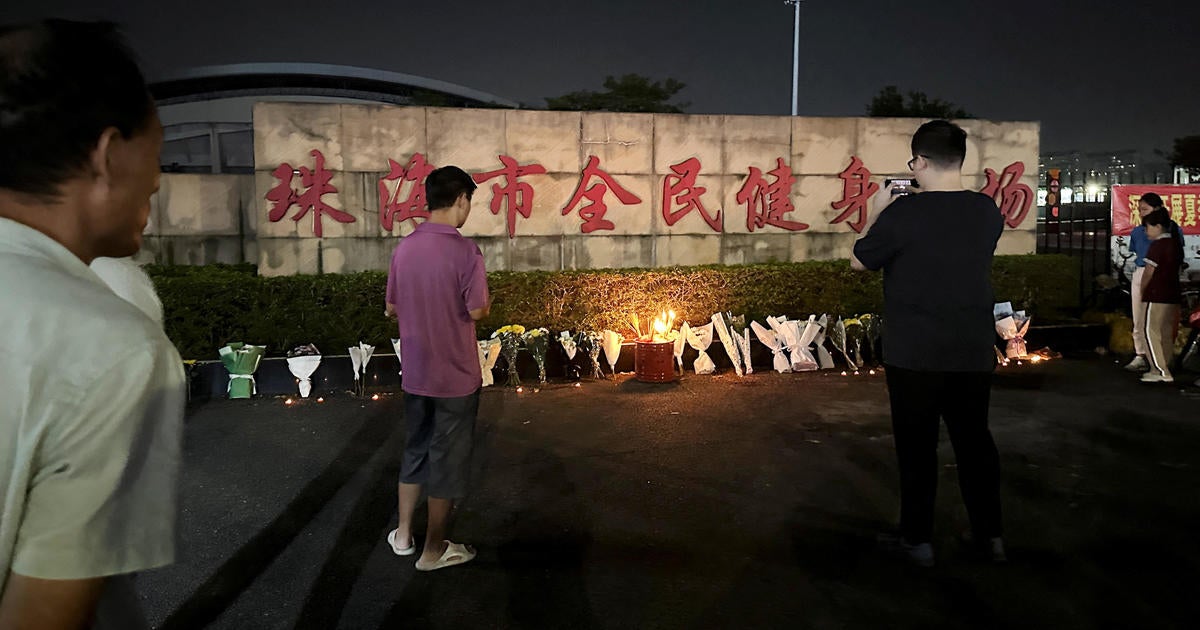China Executes Two Men for Deadly Attacks Amidst "Revenge on Society" Crimes Surge
In a chilling development that has sent shockwaves across the nation, China has carried out the executions of two men responsible for horrific attacks that claimed the lives of dozens of innocent people. The events, raising serious concerns about a disturbing trend of "revenge on society" crimes, have sparked intense debate and prompted a stern response from the highest levels of government. Get ready to uncover the details of these shocking incidents and the urgent questions they raise.
The Zhuhai Stadium Rampage: A Divorce's Deadly Aftermath
Sixty-two-year-old Fan Weiqu's name will forever be etched in the annals of China's darkest hours. In a premeditated act of violence, he drove his car into a crowd of unsuspecting people outside a sports stadium in Zhuhai, a coastal city in southern China. The carnage was catastrophic, resulting in at least 35 fatalities and leaving over 43 others with serious injuries. This heinous act, occurring on the eve of a major aviation exhibition, marked China's deadliest attack in over a decade. The motive, according to authorities? A bitter divorce settlement.
The Devastation in Zhuhai
The scale of destruction left in Fan Weiqu's wake was unprecedented. Emergency responders were overwhelmed by the sheer number of casualties, working tirelessly to provide medical attention to the injured. Images of the aftermath painted a horrifying picture, highlighting the random and senseless nature of the attack. The incident sent waves of fear and panic throughout the city, leaving a deep scar on its community. Such violence fueled immediate concerns about societal stability. The implications for preventative measures, especially concerning family law dispute management and mental healthcare access, are now under intense scrutiny in the wake of the disaster.
The Wuxi Vocational School Stabbing: Academic Failure and Workplace Dissatisfaction
Tragedy struck again in the eastern city of Wuxi, where Xu Jiajin, a 21-year-old, launched a brutal stabbing spree at his vocational school. Eight lives were tragically cut short, with another 17 individuals sustaining serious injuries. Xu's descent into violence, according to investigators, stemmed from the twin frustrations of failing examinations and dissatisfaction with his low pay during an internship. His inability to reach academic or professional goals spiraled into deadly rage.
A Cry for Help Ignored?
The case of Xu Jiajin begs deeper questions about societal pressure and the support available to struggling young people in China. His story underscores the need for robust mental health support systems and addressing youth unemployment and inequality. Were there early warning signs missed? This is one of many such urgent queries. China's focus on educational success might contribute to increased mental health crises when those dreams fall apart. These events point towards the dire need for social reform initiatives that prioritize the mental health and emotional wellbeing of citizens.
Xi Jinping's Response and China's Death Penalty
In response to these alarming attacks, Chinese President Xi Jinping issued an urgent call to action. The killings have been classified as "revenge on society crimes," a categorization that highlights the unsettling motive: targeting seemingly random individuals in acts of extreme rage and desperation. This emphasis underlines the national urgency to identify and address such underlying issues.
The Death Penalty and International Concern
Both Fan and Xu faced the ultimate punishment: execution. China’s consistent application of the death penalty has long been a subject of international debate, with human rights organizations expressing profound concern. These recent executions fuel renewed debate over capital punishment and the ongoing efforts toward international cooperation in tackling human rights issues.
The Rise of "Revenge on Society" Crimes: Understanding the Underlying Issues
The recent spate of "revenge on society" crimes raises unsettling questions about factors like rising social inequality, economic anxieties, accessibility to mental health resources, and the overall societal pressure in China. The common theme underscores underlying systemic issues in various contexts—relationships, employment, the education system, and access to judicial processes—that may leave individuals feeling increasingly disenfranchised and helpless.
Addressing the Root Causes
Moving forward, understanding and addressing these underlying issues is vital. Experts suggest a multi-pronged approach including bolstering mental health services, strengthening social safety nets, and ensuring equal access to justice and support. Creating a more inclusive and empathetic society can serve as one of the most effective preventive measures against such violence. The lack of safety nets may cause greater systemic problems in the future. Immediate and significant investments in preventative measures would mitigate further crises.
Take Away Points
- China's recent executions highlight a troubling trend of "revenge on society" crimes.
- The cases raise crucial questions about societal pressures and access to mental health resources.
- The events underscore the importance of addressing underlying issues like inequality and economic anxiety.
- International concern remains regarding China's use of the death penalty.




